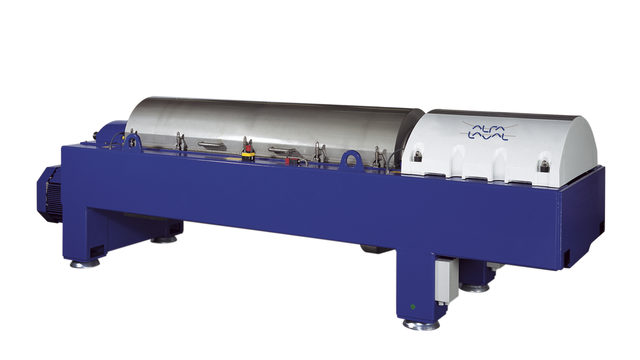AlfaPlus
AlfaPlus uses the power of centrifugal separation instead of the rotary screens and presses used in conventional surimi processing to increase yields and eliminate several process stages.
AlfaPlus handles all kinds of fish, in fillets or trimmings, and features exceptional flexibility in handling capacity changes. AlfaPlus is compact and easily modified to fit existing plants.
Minimising fish protien loss
The AlfaPlus system produces surimi from butterfly cuts (with or without the backbone attached), fillets or trimmings. Protein losses from washing and dewatering are kept to a minimum in the AlfaPlus system equipped with Alfa Laval decanters specially designed and optimized for surimi processing.
The combination of the optimal decanter configuration and process control allows seafood processors to recover 70% of the incoming mince into high-quality surimi. The surimi produced using AlfaPlus is of highly consistent quality compared with conventional processing, which produces two or three different grades.
工作原理
How it works
Decanter per pesce Alfa Plus longdesc=Decanter per pesce Alfa Plus"
To isolate the fish proteins from minced fish, the mince is first mixed with conditioned water in a mixing tank. The washing takes place continuously and the ratio of mince to water is automatically monitored and precisely adjusted. This feature ensures optimum conditions since the washed mince is then pumped to the refining stage where the fish proteins are effectively separated from non-muscle tissue such as bone, skin, connective tissue and other impurities.
For whitefish, the refined slurry is continuously pumped to the decanter centrifuge for separation of water and fish mince. If dark-fleshed or fatty fish are being processed into surimi, a second washing stage may be necessary before decanting.
All Alfa Laval surimi decanters are equipped with the unique Alfa Laval Direct Drive System®, an automatic solid control system that ensures a consistent moisture content of 82% or less.
The dewatered mince from the decanter is pumped to a blending system where it is mixed with sugars, sorbitol and polyphosphates to prevent freeze denaturation. The mixer is equipped with a cooling jacket, which keeps the temperature as low as possible and maintains the high quality of the fish protein.
The surimi enters an extruder, which forms the surimi into blocks that are then frozen.

